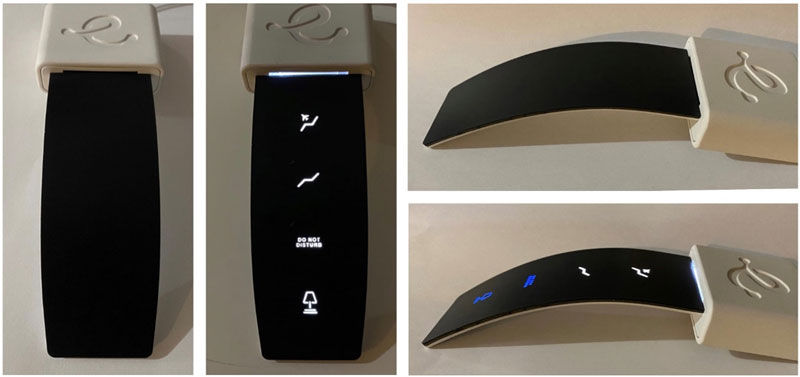Contact: Fernando Zicarelli,
North America Business Manager – Asada Mesh Co., Ltd.
Email: fernando@asada-mesh.page
website: edu.asada-mesh.com

Applications like HMI for automotive, home appliances, medical and aeronautical markets are driving the development of flexible transparent, capacitive switches. These switches enable a high level of differentiation and design freedom to make thin, ergonomic, and functional surfaces with attractive backlit schemes.
To produce, functional layers of a Transparent Capacitive Switch (TCS) circuit are printed on a production scale screen printing line at e2ip technologies. Sun Chemical’s silver paste allows us to screen print <30 micron resolution of transparent metal mesh electrodes. The inks are printed on commercially available PET substrates (Ikonics) with Sun Chemical SunTronic inks (silver conductive ink, UV dielectric ink, carbon ink and other supplementary inks as needed for the target design) and using high-quality stainless screen mesh by Asada Mesh and screens prepared by Sefar Inc (with the latest emulsion technology from Kiwo).

Fine Mesh Wire Technology (9-15 microns) allows for Thinner Depositions (2-5 microns). Visit our virtual booth
High-Resolution Emulsion Technology allows for better edge definition and ultra-fine resolution (10-30 microns below). Visit our virtual booth


PET Substrate technology has improved to help in the areas of Adhesion, Temperature Dissipation, preventing Paste Spread and obtaining Smaller Feature sizes.
Visit our virtual booth
The design, manufacture and assembly of this switch is done at e2ip technologies. A screen-printed TSC circuit is adhesive bonded to LED circuit for backlighting the icons, a light guide film and finally to a dead-front graphic label to make a thin and curved control panel demonstrator with single and multi-touch capability. The backlighting of the icons can be activated by touching the specific area.

Being sensitive to the manufacturing costs, we advise everyone to consider individual screen printing cycle times of 3-6 seconds for a single pass to help reduce overhead costs. This means faster Takt times (the rate at which you need to complete a product to meet customer demand) are possible. Typical jobs that today range around 10k parts with a 6 second cycle time will take roughly 16.7 hours to complete. As a comparison, if you take a cycle time of 5 minutes per circuit (competing technologies), this will take 833,3 hours to complete.
Screen printed fine-metal-mesh based TCS designs provide a more reliable, more cost-effective and more environmentally friendly solution than conventional electronics (i.e., copper flex), all of which are the key drivers and trends in above-mentioned markets. The combination of the right Mesh Technology, Emulsion Technology, Paste Technology, Substrate Technology and a professional screen-printing shop allowed us to reduce both the feature size and layer thickness.

Innovations Festival: Printed, Hybrid, 3D, InMold, Textile Electronics
24 June 2022 | 14:00 - 19:00 CET | Virtual Event Platform
Asada Mesh will be having a virtual booth at the Innovation Festival. Visit Asada Mesh virtual booth




Kommentare